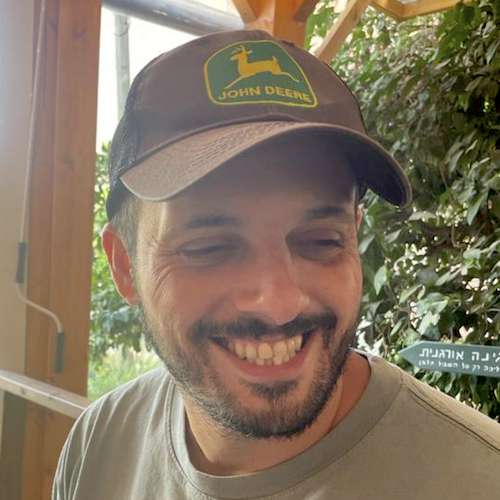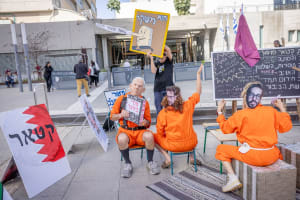The beep that shook Beirut: Inside the voices of Lebanon's pager catastrophe

On Sept. 17 and 18, 2024, Lebanon witnessed an unprecedented series of attacks that seemed pulled from the pages of a high-tech thriller. Thousands of pagers and walkie-talkies, primarily belonging to Hezbollah operatives, suddenly exploded across the country. The attacks left at least 26 dead and over 3,250 injured, overwhelming Lebanon's already strained healthcare system.
No matter their stance on Hezbollah – supporter or critic – nobody in Lebanon thought this kind of attack was possible. To be fair, probably not many in the world assumed such a thing might happen. As the dust settles, Lebanon's diverse voices have risen in a chorus of disbelief, concern, and speculation.
Let's explore how different Lebanese communities and media outlets are interpreting these events, and what they might mean for the future of this complex nation.
Hezbollah and the Shiite Community: A Call for Retaliation
Al-Akhbar, a newspaper known for its pro-Hezbollah stance, has framed the attacks as a "cowardly assault" by Israel. In an editorial, the paper stated:
"These attacks are not just against Hezbollah, but against all of Lebanon. They represent a clear escalation by Israel, and demonstrate the lengths to which the Zionist entity will go to undermine Lebanon's security. It is a clear violation of our sovereignty and a desperate attempt to weaken the resistance."
The article in Al-Akhbar goes further, describing the attacks as part of a broader neo-colonial strategy.
"The neo-colonialism, despite its different tools, still relies on the same old principles: control of resources and keeping other peoples in a constant state of subordination. What happened in Lebanon is another reminder that these forces will not stop using any means to ensure their continued supremacy."
Opposition Voices: Concerns of Escalation
On the other side of the political spectrum, voices critical of Hezbollah express concern about potential escalation. Annahar, a prominent Lebanese daily, highlighted the severe impact of the attacks and the complex situation facing Hezbollah.
In an analysis piece, Ali Hamadeh wrote: "Operation #Pager can be considered one of the largest attacks Israel has carried out in four decades against Hezbollah. It's truly more than a painful blow. It's a disaster befalling the aforementioned party at all levels, from security and military to organizational and social. Therefore, Hezbollah's available and unavailable options must be carefully considered.”
While Hamadeh's criticism of Hezbollah is subtle, it's noteworthy in Lebanon's complex media landscape. The careful wording reflects the delicate balance that Lebanese journalists must strike when discussing sensitive political issues. Openly criticizing Hezbollah or appearing sympathetic to Israel could potentially endanger both the writer and the newspaper. As such, Hamadeh's analysis, which implicitly questions Hezbollah's preparedness and highlights the severity of the Israeli attack, represents a cautious yet significant critique within the constraints of Lebanon's political realities.
The nuanced nature of such commentary underscores the challenges faced by Lebanese media in providing balanced coverage of the conflict. It also highlights the sophisticated reading required by Lebanese audiences, who often must read between the lines to discern the full implications of political analysis in their national media.
The Christian Perspective: Caught in the Middle
L'Orient-Le Jour, a French-language newspaper reflecting Lebanese Christian viewpoints, expressed deep concern over the escalating conflict and its implications for Lebanon. In an editorial by Fifi Abou Dib, the paper stated:
"We have never seen such a war. In Lebanon, it pits the Israelis, insatiable colonialists and sadistic pranksters, against the eschatological fighters of Hezbollah for whom death and time are nothing as long as they are part of divine will. Between the adventurous feints of some (how can we forget the Iranian mini-Star Wars in April?) and the sneaky, almost personal attacks of others, we are heading towards a generalized conflict, at least on a regional scale."
The editorial goes on to warn about the potential for widespread destruction.
"Given the means deployed, there is no need for a nuclear arsenal to destroy everything. 'I do not know what the Third World War will be like, but what I am sure of is that the Fourth World War will be resolved with sticks and flints,' wrote Einstein. We are not far from missing a square to go directly to the fourth planetary delirium."
This perspective reflects the complex position of Christians in Lebanon. Once the majority, they now comprise an estimated 30-40% of the population. Many Christians feel caught between regional powers and fear that conflicts involving Hezbollah could lead to instability that disproportionately affects minority communities.
A Nation in Shock
As Lebanon grapples with the aftermath of these attacks, the nation finds itself at a critical juncture, united in a shared sense of disbelief. The diverse voices within Lebanon, while often divided on political issues, collectively express a profound shock at the nature and scale of these attacks.
Al-Akhbar's editorial captures this sentiment of shock and defiance:
"On a regular Tuesday afternoon, the unthinkable happened. As hundreds reached for their pagers, suddenly, each device became a hostile entity and self-destructed before the eyes of the youth. People found themselves disconnected, trapped in a world where their digital companion had become their worst enemy."
The article goes on to frame the attack as part of a larger technological conflict.
"The Zionist enemy's goal was not just to harm the body of the resistance, but they wanted to disrupt their digital transformation process and contaminate the word 'technology' in their minds."
This sentiment is echoed across the political spectrum. The unprecedented nature of the attacks has forced many to reconsider what they thought they knew about modern warfare.
If one expected to hear voices sympathetic to Israel's motivation to deter Hezbollah, such expectations would be overly optimistic. Across the political spectrum, open support for Israel remains taboo.
Yet, beneath the surface of this unified front, cracks are beginning to show. Through these fissures, one can detect a growing frustration and anger with Hezbollah's actions. Many Lebanese, while not openly critical, privately express resentment at being dragged into a conflict they did not choose and do not desire. This undercurrent of discontent, while not pro-Israel, reveals a populace increasingly weary of Hezbollah's influence on Lebanon's fate.

Tolik is a Middle East analyst and media professional with extensive experience in covering regional geopolitical developments. His background spans analytical journalism, media production, and strategic communications, having contributed to major Israeli and international television networks and newspapers.
You might also like to read this:














